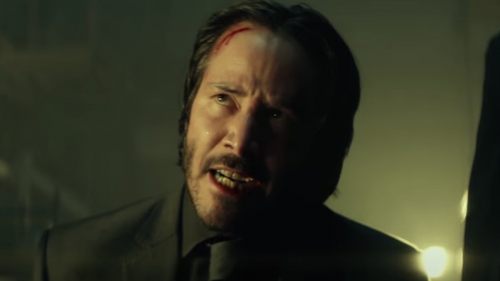Stalking Richard Simmons
It’s over. Despite a six-episode investigation into his "disappearance," Richard Simmons, celebrity fitness guru and '80s pop culture curiosity, doesn’t want to be found. That’s the anticlimactic, albeit completely unsurprising, ending to Dan Taberski’s podcast, Missing Richards Simmons. And instead of resolution, what the series leaves us with is the sinking, sickening feeling that we were duped into being complicit in a total invasion of privacy.
I never buy into what’s popular (still haven’t gotten around to Serial), but here the hype is in the title. It ignites a chain reaction of emotion: Richard Simmons is missing? No, he’s not. He just posted something on Facebook the other day! Come to think of it, he hasn’t really been in the media for a while…Before I knew it, I was looking up everything from Richard Simmons’ (now-defunct) Instagram account to recent video interviews (three years?!) and came across a TMZ article that reported the LAPD visited his home last year after his masseuse reported elder abuse.
And then I hit play.
At first, I thought it was a sweet, thoughtful, and seemingly harmless gesture: a six-part podcast that delves into the mystery of just what happened to quirky, loveable exercise freak Richard Simmons. He’s the kind of empathetic celeb whose well-being people are innately concerned about. Some of the people Taberski interviews talk about the way Simmons changed their lives on a personal level. His impact goes beyond helping them lose weight; one woman even says that Simmons called her every week just to chat, and even divulged some of his own inner demons in the process. He was like a therapist to some people, one who checked in with his clients free of charge. Taberski stresses this throughout the podcast, and repeatedly poses the question, “But doesn’t Richard owe these people some kind of closure?” Don’t they, at the very least, deserve a goodbye?
Taberski is a smart man. He used pathos to appeal to a mass audience, and it worked. Like many others, I fell for it instantly. The more you learn about Simmons’ commitment to helping others and the uniquely personal connections he made – he once left a crying voicemail to a woman who wrote about her mother’s passing in the contact form on his website - the more frustrated you become. How could he just disappear like that? How could he vanish without a word for three whole years? And that emotionally invested frustration is what Taberski wants. Here is a person who describes himself as a member of Richard’s inner circle, a former regular at his Slimmons fitness class, who seems deeply hurt by the disappearance of his friend. Repeatedly pestering his manager; posing several disappearance theories that include depression, sickness, transitioning, and elder abuse; and even flying to New Orleans to track down Simmons’s brother and knock on his front door - there’s no way he would be doing this if he didn’t truly care, right?
Taberski, in his own words, says the podcast is a “love letter.” I believed that up until The New York Times reported last week that Taberski was in the early stages of a documentary about Simmons when Simmons cut off all contact. Upon hearing this, I felt stupid, cheated even. Was Dan Taberski on a quest for closure, or was this all just the result of Taberski’s unwillingness to scrap his documentary idea? How much of the material used in the podcast was pre-recorded, or salvaged from the project? Was this genuine concern from a friend, or the work of a dubious investigative journalist? The piece, which calls the podcast “morally suspect,” highlights the most problematic moments of the podcast. This includes Taberski’s refusal to accept the possibility of Simmons being depressed as reason for leaving the spotlight (he asks Michael Catalano, Simmons’s manager, if there is “something serious going on, like illness” so he could just “let it be”), and proposing the exploitive theory that Simmons could be transitioning to female using a report from the National Enquirer and a soundbyte from a former Slimmons-goer who claims Simmons was “dressing in drag” before his disappearance.
Somehow, I managed to overlook all of this in my belief that there could be no way someone would be doing this unless they really, truly cared. But friends don’t launch invasive viral podcasts about other friends. Taberski implies that he was driven to make the investigation so public after Simmons’ refusal to speak to him (or anyone), but it’s almost as if he wouldn’t take “Richard’s fine, he just wants to be alone” for an answer because he was searching for a hard-hitting story or some big, shocking reveal. The podcast ended with neither.
I knew from the beginning that it wasn’t going to end with Richard coming out of hiding after having some grand realization about how much the world misses him – I think we all knew that – but I still held on to that faint glimmer of hope that maybe, just maybe, Simmons would give Taberski a call. If not to assure him he’s okay, then to at least tell him to stay the hell out of his personal life. Whatever caused Richard Simmons to withdraw from the public eye is, ultimately, none of our business.
And thanks to this podcast-turned-pre-mortem-autopsy, it seems likely we're not going to hear from him anytime soon. In the series finale, Catalano calls Taberski and says, “I can’t say that Richard feels better as a result of the podcast. I mean, perhaps you do…I think you’ve really created more worry and speculation.” Taberski is silent. And in that moment, I felt like an accomplice. I was just as bad as him, for listening, for casually sharing the disappearance theories with my friends and family, and for ultimately buying into a hype that seems to have done a lot more harm than good. I might as well have been trying to ring Simmons’ doorbell and call all his loved ones, too. The guilt was on both sides.



